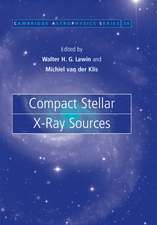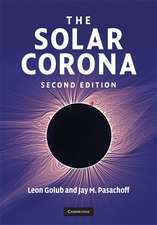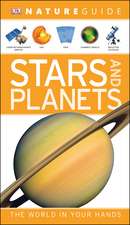The History of Ptolemy’s Star Catalogue: Studies in the History of Mathematics and Physical Sciences, cartea 14
Autor Gerd Graßhoffen Limba Engleză Hardback – 21 dec 1989
| Toate formatele și edițiile | Preț | Express |
|---|---|---|
| Paperback (1) | 1002.31 lei 6-8 săpt. | |
| Springer – 17 oct 2011 | 1002.31 lei 6-8 săpt. | |
| Hardback (1) | 953.97 lei 6-8 săpt. | |
| Springer – 21 dec 1989 | 953.97 lei 6-8 săpt. |
Preț: 953.97 lei
Preț vechi: 1163.38 lei
-18% Nou
Puncte Express: 1431
Preț estimativ în valută:
182.56€ • 198.24$ • 153.35£
182.56€ • 198.24$ • 153.35£
Carte tipărită la comandă
Livrare economică 23 aprilie-07 mai
Preluare comenzi: 021 569.72.76
Specificații
ISBN-13: 9780387971810
ISBN-10: 0387971815
Pagini: 348
Ilustrații: XIV, 348 p.
Dimensiuni: 155 x 235 x 21 mm
Greutate: 0.69 kg
Ediția:1990
Editura: Springer
Colecția Springer
Seria Studies in the History of Mathematics and Physical Sciences
Locul publicării:New York, NY, United States
ISBN-10: 0387971815
Pagini: 348
Ilustrații: XIV, 348 p.
Dimensiuni: 155 x 235 x 21 mm
Greutate: 0.69 kg
Ediția:1990
Editura: Springer
Colecția Springer
Seria Studies in the History of Mathematics and Physical Sciences
Locul publicării:New York, NY, United States
Public țintă
ResearchCuprins
1 The Stars of the Almagest.- 1.1 The Documents.- 1.2 The Arabic Revision of the Almagest.- 2 Accusations.- 2.1 Tycho Brahe.- 2.2 Laplace and Lalande.- 2.3 Delambre’s Investigations.- 3 The Rehabilitation of Ptolemy.- 3.1 The Number of Hipparchan Stars.- 3.2 Supplementary Catalogues.- 3.3 The Reconstruction of the Hipparchan Catalogue.- 3.4 Gundel’s List of Hipparchan Stars.- 3.5 Precession and Solar Theory.- 3.6 Accusations.- 4 The Analysis of the Star Catalogue.- 4.1 The Catalogue in the Almagest.- 4.2 Criticism of Vogt.- 4.3 Gundel’s Stars.- 5 Structures in Ptolemy’s Star Catalogue.- 5.1 Star Maps.- 5.2 Multiple Sources.- 5.3 Method of Selective Error Distribution.- 5.4 Errors of the Solar Theory.- 5.5 Fractions of Degree.- 5.6 Hipparchus’ Commentary on Aratus.- 5.7 Calculation of Phenomena.- 5.8 Deviations from Reality.- 5.9 Reconstruction.- 6 Theory and Observation.- 6.1 The Aristotelian Heritage.- 6.2 The Uncertainty of Empirical Data.- 6.3 Radical Empiricism.- 6.4 Holistic Rationalism.- 7 Appendix A.- 7.1 Stars and Constellations.- 7.2 Identifications.- 8 Appendix B.- 8.1 Transformation Formulae.- 8.2 Column Headings.- 9 Appendix C.- 9.1 Column Headings.- 10 Literature.- 11 Index.
Recenzii
"Grasshoff presents a detailed study of the catalog starting with its history and then details the various controversies over the catalog from Tycho through Dreyer and R.R. Newton. His analysis considers such questions as precession and solar theory, the methods of observations, and the internal errors of the catalog. The author concludes that Hipparchus' observations were incorporated into the Ptolemaic catalog but that Ptolemy, in the absence of any understanding of how to treat errors of observation, selected from a variety of observations those that best fit his theory. Charts of all the Ptolemaic stars and a catalog of their modern identifications are given."|-Choice||"The author's purpose is to lay to rest an argument which has blazed for several centuries, the question at issue being this: did or did not Ptolemy plagiarize (from Hipparchus) some of his data, and fabricate some of rest? The author begins with a detailed review of the history of the argument, turns then to a close examination of the data itself, and concludes that the charges which have been brought against Ptolemy are rooted in anachronism and in misunderstanding of his scientific objectives. One of several appendices provides modern identifications of the stars which appear on Ptolemy's list. Very carefully argued and produced, with detailed references, many figures. Sensible, useful...but quite unlikely to achieve its objective.”|-Book News



































